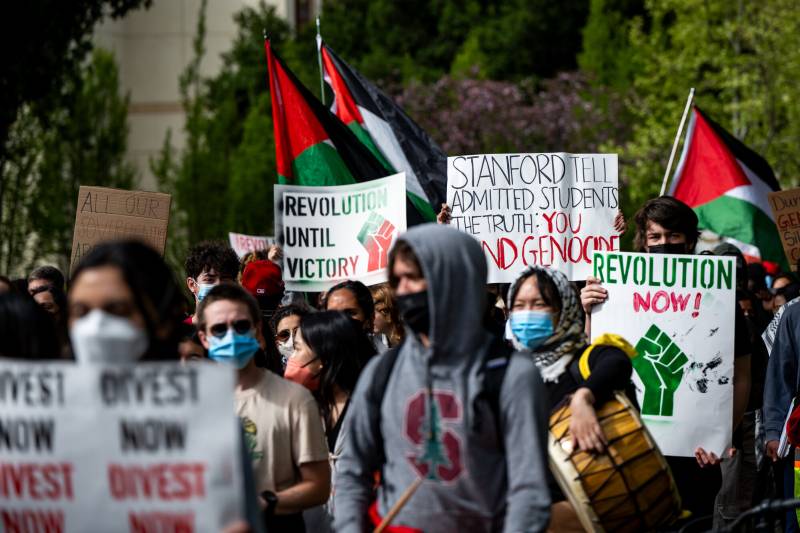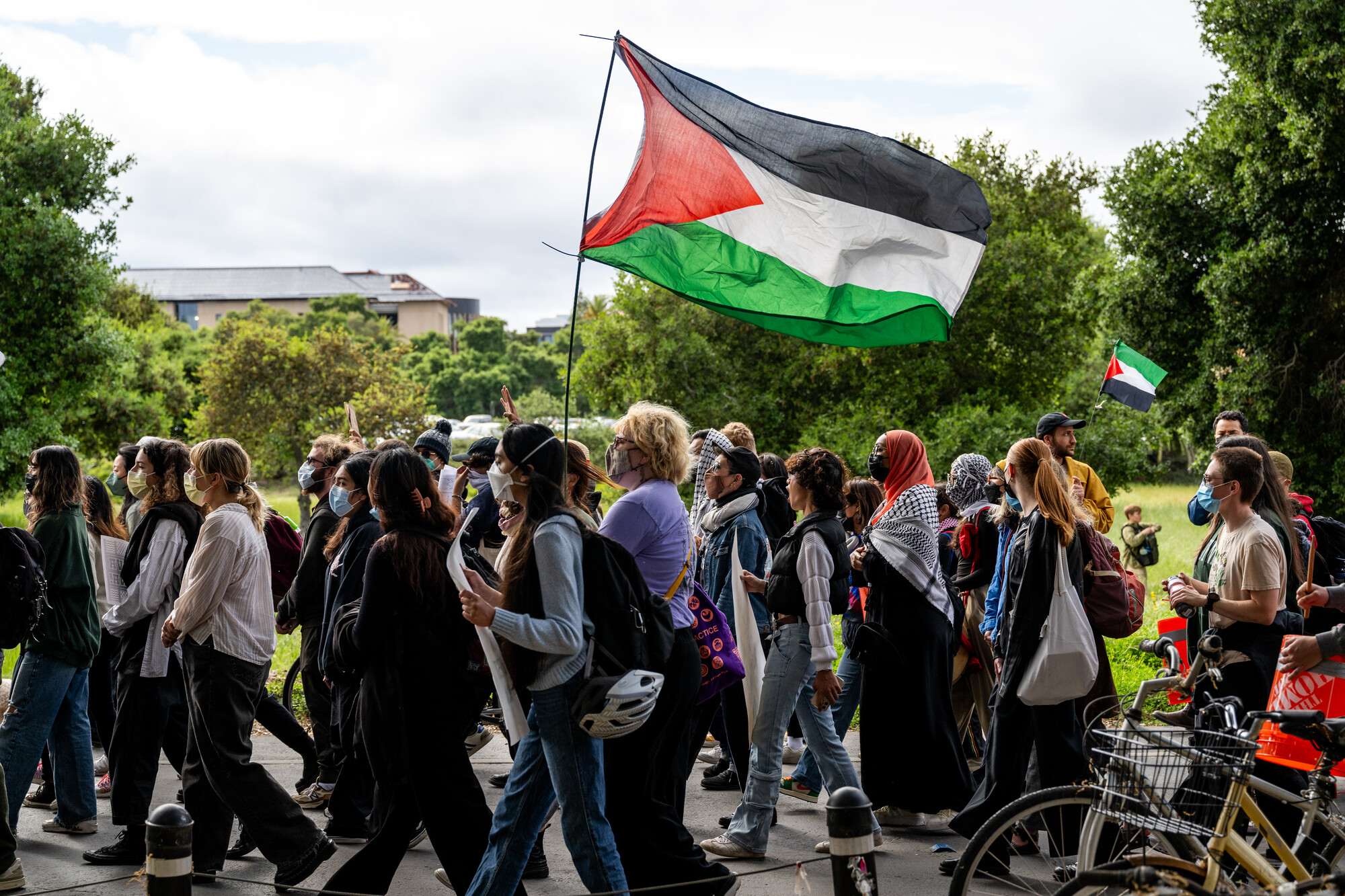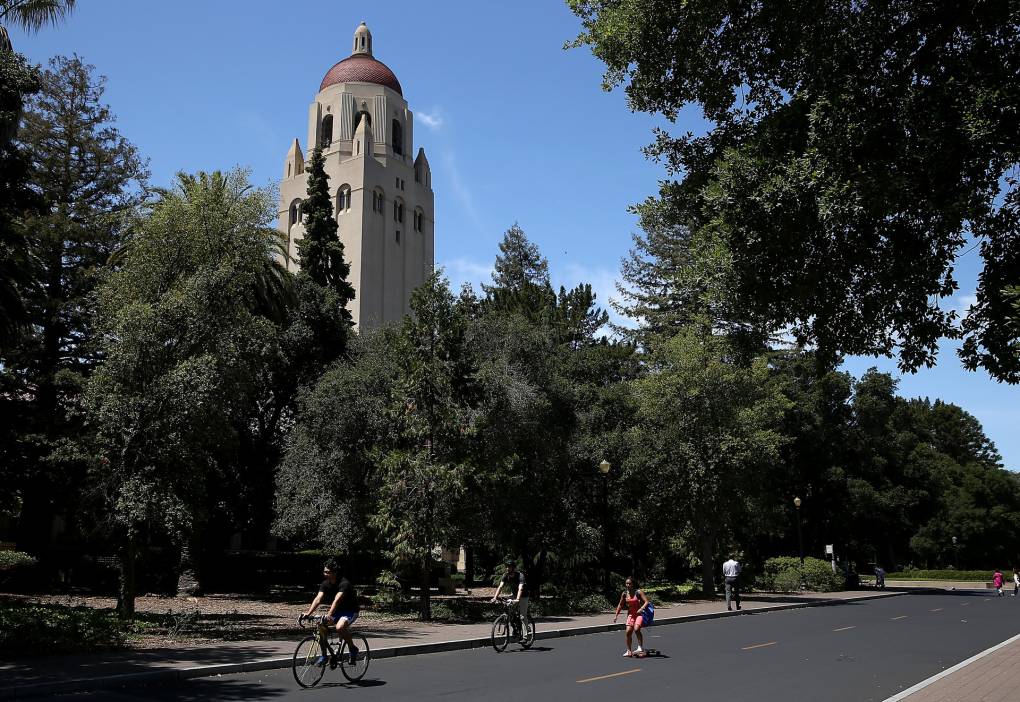Days before the start of its fall term, Stanford announced new “freedom of expression” policies amid a polarized presidential election season and the ongoing war in Gaza.
Among the biggest policy changes are an obligation to remove facial coverings when asked and a clarification of the camping policy, requiring that tents and structures be removed overnight regardless of whether people are present. Much of the policy is not new, but it centralizes rules regarding where and how students can protest, and it introduces a new reporting system for discrimination after multiple high-profile antiwar protests — including a barricade inside the office of the university’s president that resulted in 13 arrests — in the spring.
The new rule on facial coverings requires people to remove them for the purpose of identification “under circumstances covered by the Campus Disruptions Policy,” similar to policies introduced at other universities this fall. People could be asked to remove masks for identification if they are violating policy by disrupting or preventing classes, lectures, meetings and other activities, obstructing the movement of any person around a campus building, or refusing to leave a building that is closed.
“It’s a method of surveillance that a lot of students don’t necessarily feel comfortable with,” Emily Williams, who was a spokesperson for the Stanford Against Apartheid in Palestine coalition in the spring, told KQED. They said some students were worried about the “subjectivity” of the requirement.



